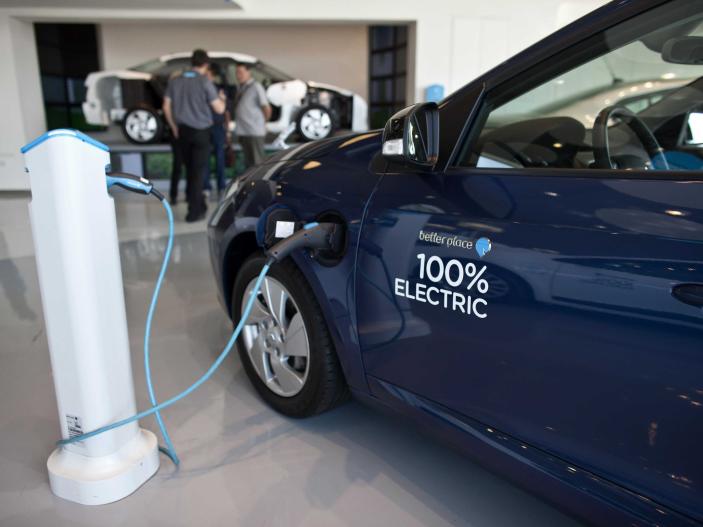Another Electric Car Company Is Going Bankrupt

REUTERS/Nir Elias
Electric car battery supplier Better Place plans to file for bankruptcy within the next few days, CNN Money reports.
Better Place was a proponent of battery swapping technology, which involves replacing an electric car's depleted battery, rather than charging it.
Saving that kind of time would be a huge boon for the electric vehicle industry, which is hamstrung by battery technology that keeps charge times long, range limited, and prices high.
Better Place, founded in 2007 by Israeli entrepreneur Shai Agassi, proved in 2010 it could swap out and replace a battery in under 60 seconds, far faster than even the best EV charging times.
According to the New York Times, Agassi, a former top executive at SAP, raised over $800 million in private capital from investors including HSBC, General Electric, and Morgan Stanley. It built a small network of stations in Denmark and Israel.
But between 2010 and February 2013, it posted $477 million in cumulative losses. That month, it announced it would close its operations in North America and Australia, and continue working in Israel and Denmark.
That move could not save it, however, and the electric vehicle market did not expand at the pace the company had expected, according to CNN Money.
"The company was not well-served by having things it thought would happen over a decade happen within a year," a source told CNN. "Ultimately the idea was always based around scale, and it just didn't build it fast enough or well enough."
This news comes as Tesla Motors — riding high after becoming profitable and paying off its loan from the Department of Energy — plans to announce news about its Supercharger network, where its customers can charge their car batteries halfway in 30 minutes, for free.
There is speculation that Tesla will announce a battery swapping scheme, which seems less likely now, given the expected failure of the company that had gone the furthest in making the technology a reality.
More From Business Insider

